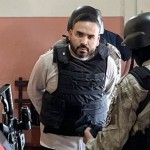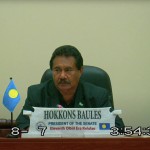The legislation has been strongly criticized by local and international non-governmental organizations but was nevertheless adopted in a two-minute procedure without any questions from the members of Parliament.
MP Dastan Bekeshev posted on social media that 66 MPs voted in favor of the law while only five voted against it. Now, only the president's signature is required for the law to come into effect.
According to a press release issued by the Parliament, the law was developed to ensure the transparency of the activities of non-profit organizations, particularly those financed from abroad.
Such NGOs will be required to provide additional reports and may be subject to unscheduled inspections. They will also be included in a special register and required to add a special disclaimer to their publications stating that the author of the information is a foreign representative.
The law follows the Russian model of control over NGOs. President Sadyr Japarov and several MPs have argued that “the West” is trying to influence Kyrgyzstan through civil society organizations.
One of the main initiators of the law, MP Nadira Narmatova, said in an interview with the local news outlet Vecherniy Bishkek that this act “does not violate freedom of speech.”
“Why do Americans and representatives of other Western countries so zealously oppose this law? Will anyone really believe that the West cares so much about the problems of our children and women?” she asked.
“Any sane person will understand that the West is afraid of losing its mechanisms for influencing our politics and shaping our public opinion,” she claimed.
In one of her parliament speeches, Narmatova underlined that this law will strengthen oversight of non-governmental organizations for the sake of the interests, security, and integrity of the state.
Kyrgyz President Sadyr Japarov himself defended the act in his open letter to U.S. Secretary of State Antony Blinken, who, according to Azattyk, said that its adoption would impose “civil and criminal penalties” on non-governmental organizations, harming their work in the country.
Japarov said those concerns are baseless because the new law will just “clarify and streamline the activities of non-governmental/non-profit organizations operating in the Kyrgyz Republic.” At the beginning of his letter, the President also claimed that Blinken’s letter shows signs of interference in the internal affairs of Kyrgyzstan.
Japarov also claimed that some NGOs were misinforming the public and foreign officials about the state of human rights and freedom in Kyrgyzstan.
U.S. Ambassador to Kyrgyzstan Lesslie Viguerie said in an interview with the Tazabek news outlet that the new law could limit Washington's ability to help Kyrgyzstan. According to him, the United States still remains committed to providing assistance that benefits the Kyrgyz society, but that assistance is mostly implemented through NGO projects.
“This means that our ability to provide schoolchildren with hot meals and textbooks, provide essential medical care to treat dangerous diseases, or work with Kyrgyz farmers to increase agricultural exports and support the transition to a new, more environmentally sustainable economy will all be potentially limited by this legislation,” the Ambassador said.
In June 2023, several organizations such as International Partnership for Human Rights (IPHR), Norwegian Helsinki Committee, Helsinki Foundation for Human Rights, Human Rights Watch, and others appealed to the Kyrgyz Parliament not to adopt the “dangerous and ill-conceived” law.
They said that it “poses a direct and serious threat to the active civil society of Kyrgyzstan, in particular to human rights defenders and human rights organizations.”
“If passed, the law would allow authorities to arbitrarily discredit and impede the activities of foreign-funded non-profit organizations. Due to the vague language used in the law, almost any activity carried out by human rights and other non-governmental organizations can be interpreted as “political activity,” the joint statement said.
The United Nations warned last October that the law would have “a negative impact on the activities of all non-profit organizations in the Kyrgyz Republic, limiting their ability to promote respect for human rights, provide social services and contribute to the development of a strong and inclusive society.”
Kyrgyz human rights organization “Adilet” asked almost a year ago for the draft to be rejected, claiming that a similar bill in Russia eventually led to the closure of many human rights organizations and independent media.
Another organization “Bir Duino-Kyrgyzstan” appealed to the Constitutional Court to review the bill as human rights activists believe that its provisions violate the Constitution.
The law on foreign agents is not the only one that could affect local independent newsrooms.
Another draft law - on mass media - developed by the Presidential Administration reached the Parliament in December 2023. According to experts from the Kyrgyz Institute of Media Policy, the draft threatens freedom of speech and aims to “eliminate” websites that criticize the government.
Activists are concerned about several provisions of the law they see as another copy of the Russian law on mass media.
Experts also suggest that if adopted, “online media” could face difficulties during registration since they need, along with traditional forms of media, to provide information about the territory of distribution, the maximum size of publication, and how often they intend to release news.
This law passed the first hearings in the Kyrgyz Parliament last week; however, on March 13th, the press service of the President said that the draft was recalled and sent for revision after the President had met with editors-in-chief of the country's media.



